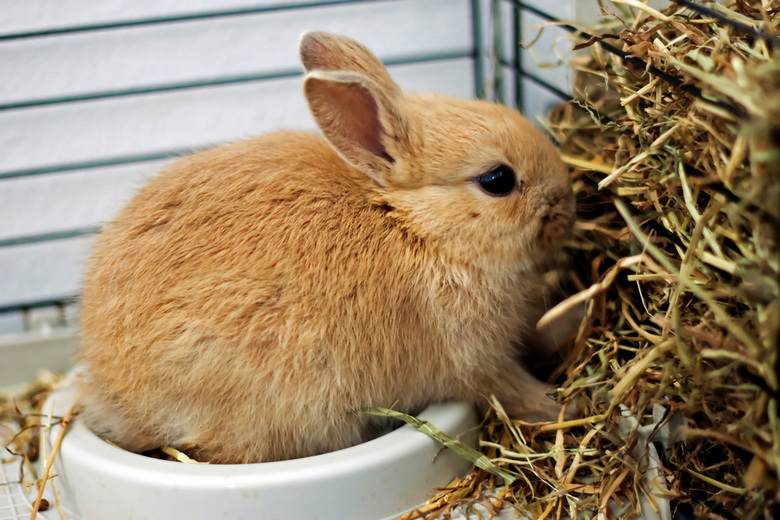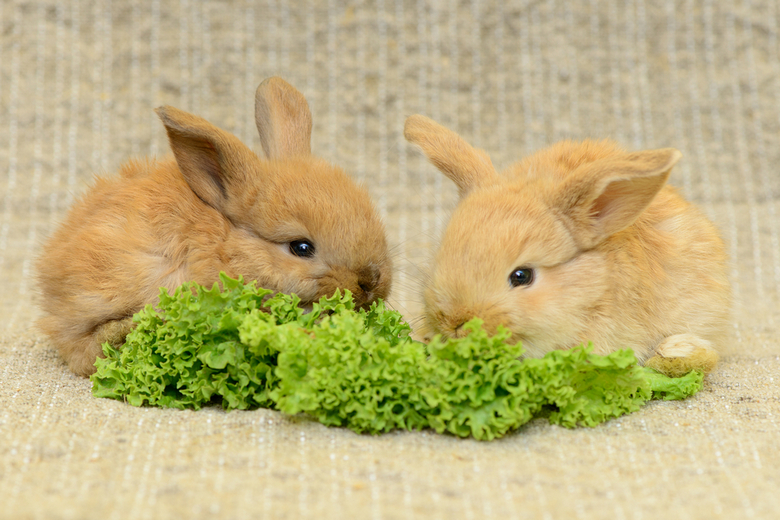What does a bunny eat?... Carrots! With “Bugs Bunny” in mind, this is the answer many would give to a question like that. But are carrots really all that rabbits eat? It may sound silly, but a rabbit does live on way more than just carrots and a few veggies. Most of the veterinarians in this area know that a healthy diet is for sure vital for the rabbit’s health. Therefore, here at PetComments, we will give you 10 healthy diet tips for your home rabbit.
10 Rabbit Diet Tips
1. Educate yourself on the importance of a healthy diet for your rabbit
Here is a life-changing tip for new rabbit owners out there: a healthy diet can save your bunny from a painful death. Please highlight the past sentence in bright colors. A diet that does not contain enough indigestible fiber for your rabbit or is high in carbohydrates can provoke the shutdown of the gastrointestinal tract, something called GI stasis.
To put it simply, when the speed at which the material moves through the gastrointestinal tract is altered, it affects how quickly the stomach and cecum empty. Because of this, the rabbit feels full and refuses to eat or drink water, making things worse. The rabbit’s body still needs water in this state, a reason why is that the body takes the water from whatever is in the stomach or cecum; making its contents further dehydrated and impacted. Still feeling full and with no way of discarding the contents of its body, the rabbit becomes anorexic and dies. Sad but true. To prevent this at all, remember to provide a healthy diet rich in fiber for the rabbit and watch its eating habits, as you obviously don’t want your bunny to be sick.
2. The basics: Fiber and hay

Where can you find fiber for your rabbit? The quickest and absolute answer must be hay. Hay is indispensable for your rabbit’s diet and wellbeing and should be available at all times. This isn’t only the prime source of fiber for your bunny, rabbits also love to play with and arrange the hay in their own particular way, which is also healthy for the rabbit’s teeth. The rabbit’s teeth grow nonstop; hence, they need to continuously chew to keep them at a reasonable size. A rabbit with teeth problems will have gastrointestinal issues in the future as well.
There are different types of hay, alfalfa hay is rich in proteins, high in calories and calcium, so this fits in wonderfully for a growing bunny. On the other hand, alfalfa hay is not very advisable for more mature rabbits, for them timothy hay is the best option. Of course, every rabbit has different needs; a mature rabbit with a protein deficiency will need alfalfa hay, but for more information don’t forget to ask the vet for a proper diet for the rabbit.
3. Water
Fresh water, just as the hay, must always be available for your rabbit. It is estimated that a fully grown rabbit drinks at least double the amount of what it eats, so proper hydration will also prevent gastro-intestinal disease. Giving wet veggies is also a good option to keep your rabbit hydrated, but this will never substitute water. A bottle of water hanging in its cage is a good option; they can also drink from a water dish.
4. Veggies are good for the rabbit
Being herbivores, greens are a healthy part of a rabbit’s diet; greens provide important vitamins, minerals, and nutrients. This should be 10% to 15% of your rabbit’s diet, with 80% being hay and 10% pellets. Is important for the rabbit to have veggies that are fresh and free of pesticides, so be careful when you pick them.
Among the most popular choices for rabbits are carrot tops (yes, they love it), mint, celery, cilantro, dandelion greens, among others. The key is to provide variety in the rabbit’s diet, avoid a mono diet at all costs and never give the same veggies.
5. Pellets: your rabbit’s best friend?
Purchase only enough pellets for three months for your bunny to find it fresh and tasty. Pellets are high in protein, and for this reason they are especially recommended for young bunnies, but you should limit the pellet intake of your bunny as it grows. Never give pellets as “treats” mixed with dried corn or other additives, as these are not healthy for the rabbit and can cause digestive problems.
6. Healthy treats
Yes, there are healthy treats for your bunny! You can give a bit of fruit to your rabbit, yet never give more than one or two tablespoons of high fiber fruits per five pounds of rabbit, only one or two times a week. Too much sugar will make your rabbit fat. You can use the treat as part of the reward or training system of your bunny but avoid excess.
Among the healthy treats you can give your bunny you’ll find: blackberries, blueberries, cherries, Kiwi fruit, mango, melons, edible flowers (from a garden and not a florist), papaya, peach, pear, pineapple, and raspberries.
7. Caution: Foods your rabbit better avoid
Just because your rabbit likes it doesn’t mean it is good for them, so rabbit owners must be very careful with their pet rabbit’s diet. Some foods are commonly given to rabbits but are not good for them like cereal or hamster food. Starchy foods, high sugar, and artificial ingredient food must always be eluded, like chocolate, cookies, grapes, crackers, chips, corn, pasta, potatoes, yogurt drops and so on.
8. A healthy diet for a young bunny

A baby rabbit is not introduced to solid food until he is at least a month old; before that, it should feed only of the mother’s milk. Alfalfa and pellets are introduced after the first month, without discarding the mother’s milk for two months and vegetables are introduced only after a year; one at a time, with quantities under a ½ oz.
9. A healthy diet for an adult rabbit
Adults rabbits have more options, as long as they’re not under a strict vet prescribed diet. Rabbits older than one year can be introduced to timothy hay, grass hay, oat hay and other types of hay, but as they grow older the alfalfa hay must be decreased. Likewise, pellets must also decrease to ½ cup per 6 lbs. of body weight. The fruit portion cannot surpass 1 oz to 2 oz per 6 lbs of body weight.
Older rabbits, up to 5 years, must have unlimited access to hay, and veggies are provided in an amount of 2 cups of chopped vegetables per 6 lbs. of body weight. When rabbits surpass the 6 year mark, the diet must be maintained, but it is necessary to pay close attention to specific needs in your rabbit’s diet and health.
10. Alert signs in your rabbit
A bunny that refuses to eat, drink, or eats less than the usual is an ill bunny. Check the feces, this should be small and round; a different shape or color or lack of feces at all definitely means a gastro-intestinal disease. For any abnormalities in your house rabbit, consult the vet.
Final Words
This may sound too extreme, but the health of the house rabbit is an important matter for their owners. We want our rabbits to live a long and healthy life as much as they can live. To achieve this, a healthy diet is most definitely vital for them. We sincerely hope these tips proved to be helpful for you and your pet rabbit. All the care and attention you can provide to your rabbit will always be rewarded with love.
References and further reading:
- Vetwest, RABBITS - FEEDING AND NUTRITION
- Zooh Corner Rabbit Rescue, Feeding Your Pet Bunny for a Long Healthy Life
- House Rabbit Society, Rabbit Food
- House Rabbit Society, Greens are Great!
- PETA, These 15 Foods Could Harm or Kill Your Rabbit
- The Rabbit House, Diet for Young/Baby Rabbits